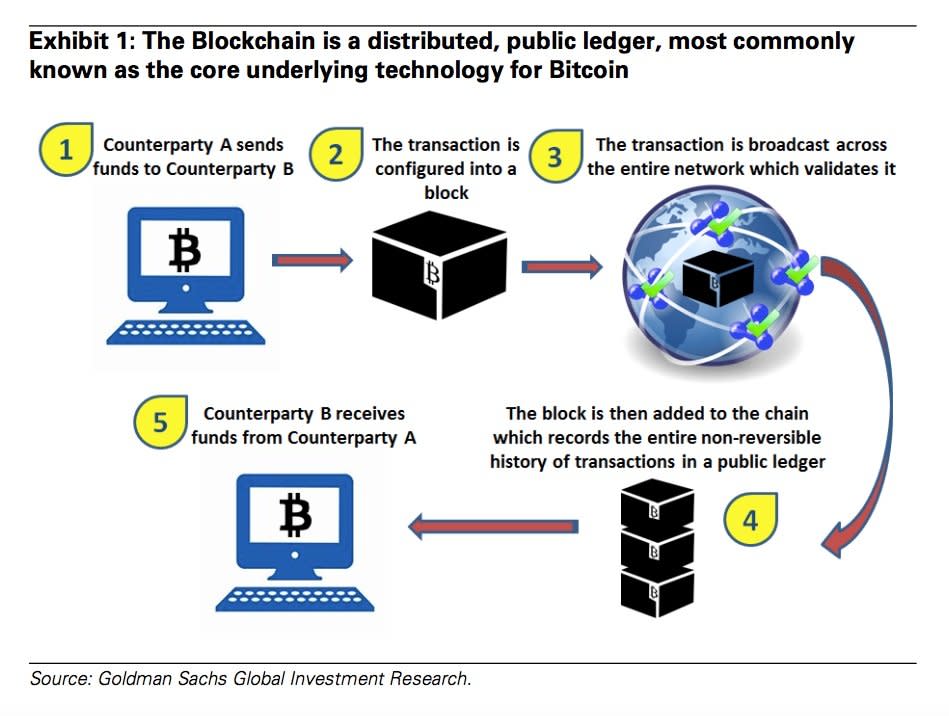Santander is letting staff use the tech behind bitcoin to send money to each other

REUTERS/Sergio Perez
Santander has launched a new app that lets people transfer money internationally using blockchain technology, the cutting-edge database protocol that underpins bitcoin.
The main benefits of the new tech are speed and accuracy.
The new app, which for the moment is just being trialed with staff, will let people transfer between £10 and £10,000.
The efficiency of the new technology means transfers will show up within 24 hours, compared to the current wait times that can vary from one day to three days.
When it shows up in your account you'll be able to spend it immediately, too. Currently, incoming cash deposits will appear as a "pending" transaction, meaning it hasn't been cleared yet (basically been signed off by the bank). But blockchain transactions are "immutable" — that is, absolutely certain. So it does away with the "pending transactions" delay.
And the blockchain technology also means that the amount you send is the amount the other person gets. Currently, international bank transfers involve your bank telling a partner banks in another country to put money into somebody's account. Then the two banks pay each other at the end of the day.
The problem is these partner banks will often take a handling fee or processing fee that you might not be warned about at the start. That means that £100 sent could turn into £95 at the other end. With Santander's app, £100 sent means £100 received.
The app is able to do all this by using the blockchain protocol, a type of database set up first developed to underpin digital currency bitcoin. Blockchain, also known as distributed ledger technology, cuts out the need for a "trusted middleman" to sit in between parties in a transaction — the partner banks who take a fee. You can deal directly with whoever you're sending money to, just like handing them cash on the street.
The blockchain protocol allows this by copying identical records across a network, in this case banks. It then makes all parties on a network sign off on transactions at the time they are sent to ensure they are accurate. It uses complex cryptography to ensure records can't be altered.
All this cuts out the need for records to be reconciled and makes transactions quicker, cheaper, and easier when compared to the current systems. Santander estimates blockchain technology could save banks $20 billion a year in costs.

REUTERS/Sergio PerezThe bank's new app has been developed in partnership with US blockchain company Ripple. Santander invested $4 million in Ripple last October, saying at the time working on a "proof of concept" using Ripple's technology for international payments and the technology could be rolled-out to customers to allow "international payments in real time, more efficiently, at a lower cost."
Ripple is seen as one of the most exciting startups in the blockchain space. The company has developed a protocol that allows banks to use blockchain for transfers. It was founded by Chris Larsen, the co-founder and former CEO of leading US peer-to-peer loans marketplace Prosper.
Sigga Sigurdardottir, Head of Customer and Innovation at Santander, says in an emailed statement that the bank: "believe[s] new Blockchain technology will play a transformational role in the way we achieve our goals and better serve our customers, adding value by creating more choice and convenience."
Right now the Santander app allows payments in euros to 21 countries and dollar payments to the US only. If the staff trial goes well, Santander plans to roll out the app to customers later this year. Santander staff can use the app for free but if it does launch commercially it will charge a transfer fee. A spokesperson for the bank said no firm prices have been drawn up but said it would be "competitive."
International transfer is just one use case for blockchain technology that Santander is exploring. Mariano Belinky, head of Santander's fintech investment arm InnoVentures, told Business Insider last June: "We have internally identified 20 to 25 use cases where this technology can be applied." Other use cases include trade finance, syndicated lending and collateral management.
NOW WATCH: How Merrill Lynch changed the way people are paid on Wall Street
See Also:
Startup SETL just launched a blockchain platform it hopes will be the 'railroad' for banking
Barclays' blockchain tsar is jumping ship to join the 'fintech avengers'
The pound is diving after the latest EU referendum poll showed a massive swing towards a Brexit
SEE ALSO: Blockchain startup Ripple just got a big boost from Santander
SEE ALSO: Santander is experimenting with bitcoin and close to investing in a blockchain startup

 Yahoo Finance
Yahoo Finance 
